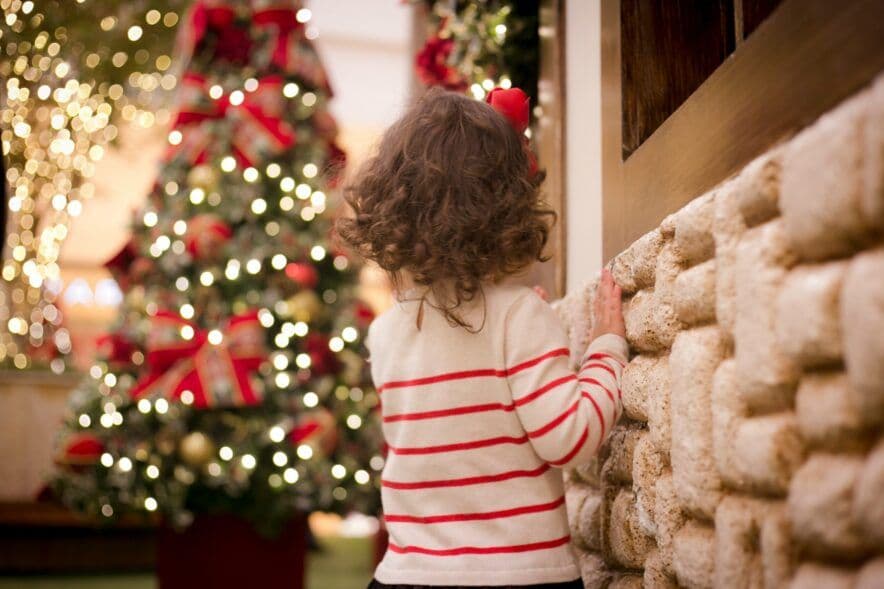Understanding Children
Keep calm and carry on your routines: how to manage kids’ ‘Christmas crankies’ over the holidays

FDC-Friendly
Contributed Content
Jan 10, 2025
Save
Christmas is coming, and with it many challenges for parents of young children.
You likely have one festive event after another, late nights, party food, way too much stimulation, tired kids and tired parents. All of which can culminate in what seems like an endless meltdown.Yes, it’s the “Christmas crankies” – a far cry from the “festive friendlies” we are all conditioned to expect.
So, what can parents do to manage, or indeed prevent, the cranky times?
Routines are your friend
Routines are very important for children. They help them to know what to expect and what is expected of them while also helping them to feel safe.Keeping to all your routines is almost impossible over the festive season (and it’s OK to be flexible to accommodate friends, family and celebrations).
But try and hold on to as many as you can. Try and stick to your bedtimes, or make sure you have the same breakfast and lunch if you are going out for a different dinner.
Even at a party, balance the festive food with healthier options. For example, have some carrot sticks next to the chip bowl and make sure the kids have some water (and not constant lemonade).
Prepare kids for what will happen
Given there are so many changes to the routine, it can also be helpful to prepare children for what is coming up.You could have a schedule somewhere for the whole family to see. This can let children see what is happening, which can help to minimise any anxiety associated with uncertainty. The schedule can include activities such as social events, the date relatives are arriving, and what is happening on Christmas Day (aside from opening presents).
Some children might also feel anxious when meeting new people or relatives, or going to unfamiliar places during the festive season. Having a clear explanation and time limit for these events can also be helpful. For example, saying something such as,
tonight we are going to your aunty’s house, you haven’t seen this aunty for a year but her name is Mary. We will be there for an hour [demonstrate on the clock] and have some dessert. Then we’re coming home, and you’ll get to read your book and then off to bed.It can also be helpful to space out some of the activities so there is some rest time in between.
Ok, but we still have a meltdown here
Despite your best efforts, it might be genuinely hard to avoid a meltdown. When a child is overwhelmed, stressed, and/or fatigued, the brain’s panic button (the amygdala) can be set off. This is what US clinical professor of psychiatry Dan Siegel refers to as “flipping the lid”.As Siegel explains, the frontal lobe (responsible for self-control), loses control over the limbic system (which contains the amygdala, and is involved in the emotional control of behaviour).
The brain’s ability to control emotions is relatively immature in younger children, and can take at least until the early 20s to fully mature.
This means in times of fatigue, stress, new and/or over stimulating environments, “self-control” can be challenged or even lost.
What to do in a meltdown
Parents can act as the proxy frontal lobe, helping their child to restore balance between their thoughts, feelings, and the demands of a sometimes chaotic Christmas setting.In these circumstances, the child needs their parent(s) to stay connected, and to use a calm voice to bring them to a more balanced (or regulated) state. Parents could say something such as,
I can see you are feeling upset right now. It’s OK – there is a lot going on at Christmas time. I am here. Do you need a cuddle?Remember, a child’s behaviour is not random – it is a vehicle to communicate a need. Maybe they need sleep, a drink, comfort, and/or some downtime.
So be on the lookout for those cranky cues so that the festivities can be enjoyed by all.
Catherine E. Wood, Associate Professor and Clinical Psychologist, Swinburne University of Technology
This article is republished from The Conversation under a Creative Commons license. Read the original article.
Don’t miss a thing
Related Articles



















